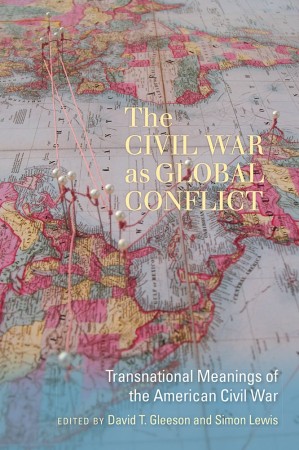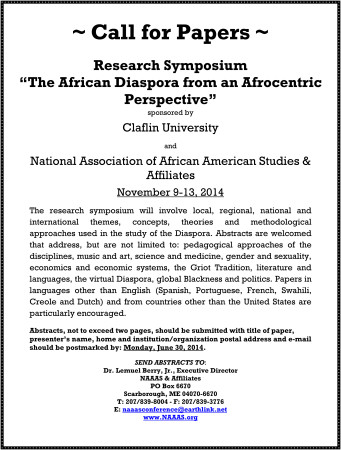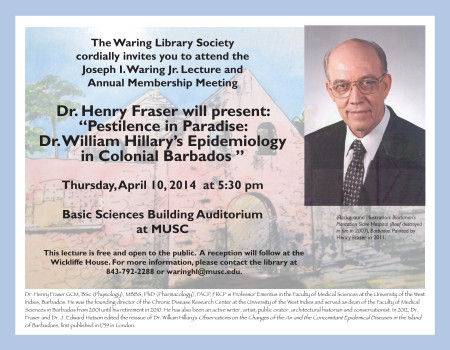From Thursday, June 11th to Sunday, June 14th, 2015, the College of Charleston will host the Southern Association of Women Historians’ (SAWH) Tenth Southern Conference on Women’s History. This year’s theme is “Re-membering/Gendering: Women, Historical Tourism, and Public History.” The conference is co-sponsored by Clemson University, The Citadel: Military College of South Carolina, and the College of Charleston.
This four-day conference will bring scholars from across the US South and the nation to Charleston to present on a wide range of topics. SAWH President, Lorri Glover, notes, “the research on the conference program is innovative and interdisciplinary, offering fresh insight into virtually every dimension of southern and gender history. The professional panels are as rich, speaking to the teaching, research, and career needs of our members.” Glover adds, “We come to SAWH for the intellectual stimulation and professional networking.”
SAWH was founded in 1970 and its membership includes over seven hundred women and men from around the world. The organization has several purposes: to stimulate interest in the study of southern history and women’s history, to advance the status of women in the historical profession in the US South, to provide a forum for women historians to discuss issues of professional concern, and to publicize and promote issues of concern to SAWH members.
Through funding support from the Carolina Lowcountry and Atlantic World Program’s (CLAW) Wells Fargo Distinguished Public Lecture series, this year’s conference will feature three plenary sessions with distinguished scholars that are free and open to the public.
JUNE 11, 5:00 pm, Alumni House at The Citadel
Keynote Lecture: “The Limits of Commemoration: Civil Rights Memory and the Enduring Challenge of Innocence,” Renee Romano, PhD, Oberlin College
Overview: Recent decades have witnessed a flurry of commemorative activity about the black freedom struggle and the history of racial violence in the United States, from the building of museums and monuments to the marking of anniversaries and the celebration of holidays. At the same time, racial inequalities remain deep and pervasive, as does racial violence in the form of police harassment and killing of people of color. In this keynote address, Renee Romano will bring together her work on historical memory and on civil rights-era violence to explore the relationship between commemoration and racial justice and to ask what role commemoration can play in helping achieve what James Baldwin described as one of the most powerful barriers to change: the willful ignorance of white Americans of the depth and extent of racism and racial violence in the nation’s history.
JUNE 12, 5:00 pm, Stern Center Ballroom at the College of Charleston
Plenary Lecture: “Making Public the Most Private: Children, Families, and Household as a Challenge to Historians,” Susan J. Pearson, PhD, Northwestern University; James D. Schmidt, PhD, Northern Illinois University; Marcia Chatelain, PhD, Georgetown University.
Overview: “Children, Families, Household as a Challenge to Historians” presents the experiences of historians uncovering the seemingly private spheres of home and family in various archives. By examining how the state and its institutions shape the inner lives of citizens, the panelists will engage the audience in strategies for uncovering these private stories.
JUNE 13, 5:00 pm, Stern Center Ballroom at the College of Charleston
Plenary Lecture: “Women, Historical Tourism, and Public History in the Lowcountry,” Katherine Mellen Charron, PhD, North Carolina State University; Leslie M. Harris, PhD, Emory University; Stephanie Yuhl, PhD, College of the Holy Cross.
Overview: In this plenary session, prominent scholars consider the role of gender, race, and class in representations of the Lowcountry region throughout a range of public history contexts. This discussion draws from each panelist’s research on Lowcountry history, from the colonial period to the twentieth century civil rights movement.
Registration to attend all panel sessions and presentations for the SAWH conference will be available onsite, at $100 for SAWH members, $150 for nonmembers, and $60 for graduate students. Please bring a check or exact change to the registration desk on the first floor of the Stern Center.
For a complete listing of SAWH 2015 Conference sessions and registration times, check out the program here. (http://thesawh.org/sawh-conferences/sawh-triennial-conference/)
For more information about SAWH, check out their website here. (http://thesawh.org/)
Questions? Contact Megan Taylor Shockley, mshockl@clemson.edu




